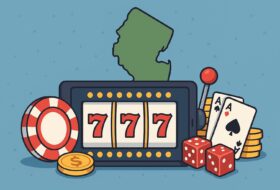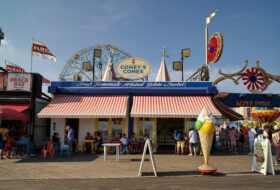
Sports are not only back, August feels like March should have.
The NBA bubble is going swimmingly well, both on the court (the presentation is top-notch) and off – the last round of testing providing zero positive COVID-19 tests.
Baseball is … well, baseball is determined to fight through, playoff hockey is back in a coronavirus-free bubble, the PGA Tour just completed its first major since the shutdown, and NFL training camps are in full swing.
It’s a sports bettors’ dream, but in Washington, D.C., sports betting has been nightmarish. Lackluster returns from the lottery-run mobile app GambetDC have raised more than a few eyebrows and questions about the viability of sports betting in our nation’s capital.
Failure To Launch
After years of legal battles, D.C. finally went live with sports betting in late May.
The District is unique to the sports betting market in that D.C. is the only region without casinos, which means the lottery handles operations. The D.C. Lottery rolled out a soft launch of GambetDC (run by Greek gaming company Intralot through a shady $215 million sole-source contract) in late May.
GambetDC’s rollout marked the culmination of a long road toward sports betting that has been delayed by lawsuits (a sports betting bill passed late in 2018) and twice by the pandemic. GambetDC was ready to launch on April 2, to coincide with the defending World Series champion Washington Nationals’ home opener.
But the pandemic wiped out both. Still, in-person sports betting has been delayed until the summer of 2021 due to the pandemic, so betting via the GambetDC app has been the only way to wager on sports in D.C.
What has happened since GambetDC launched and sports have returned, however, is what’s most concerning for the future of sports betting in the nation’s capital.
GambetDC generated just $237,000 in revenue for the city from May 30 up until Aug. 3, according to WTOP-FM (this span partially includes MLB and NBA games). For comparison’s sake, Colorado made $300,000 in revenue in May and June without the luxury of having Major League Baseball, the NBA, and the NHL in action.
See our complete guide to DC Online Gambling.
Do Not Pass Go, Do Not Collect $200
Yes, there has been an issue of a monopoly. I know, corruption in D.C.? No way! We don’t believe it either. Alas, it was true (we’ll explain how that is changing later).
Digging deeper into the numbers reveals Coloradans wagered $63 million on sports through various books (the state has 20 different operators) in May and June, accounting for the aforementioned net gain of $300,000 for the state.
Meanwhile, D.C. bettors wagered a mere $1.2 million from May 30 – Aug. 3, according to WTOP-FM. So how are the net revenues so similar? Easy, the juice. Intralot, which runs GambetDC, has been the only game in town for D.C. sports bettors, which means it can charge extra juice (the vig, or the cost of placing a wager).
That’s the biggest issue with D.C. sports betting, but there are myriad factors at play when it comes to the lackluster returns on investment. Aside from bad odds, bettors in D.C. don’t have the luxury of placing a bet anywhere in the region, unlike other states with mobile sports betting.
This stems from the fact that local law doesn’t have jurisdiction over federal land – and there’s tons of that in our nation’s capital. There are more than 30 national parks and countless federal buildings in the area. GambetDC uses geolocation (GPS) to track a person’s location, which means you can’t be in the vicinity of any of those parks or federal buildings when placing a bet.
Symbolic of the headache D.C. sports betting has been is this: GambetDC requires bettors to upload a government-issued identification, which is invasive and not standard operating procedure.
DMV Fast Lane
A monopoly in a city as transient as Washington, D.C. has been as useful as tickets to a sporting event.
The old saying goes, “No one is really from D.C.” That’s a big issue when it comes to D.C. sports betting in its current form because Virginia is poised to start taking wagers this fall and Maryland is likely to follow shortly thereafter.
Someone who is used to traveling will have no problem leaving D.C. to find better odds elsewhere in the DMV area.
Help On The Way?
GambetDC hasn’t been able to captivate D.C. sports bettors. In turn, that has disappointed D.C. officials who in 2018 projected the industry would generate 92 million over four years.
There is hope for the future, however, which also could spell the end of GambetDC. Sports betting giant William Hill launched a makeshift retail sportsbook inside the ticket office of Capital One Arena on August 3.
It’s a temporary measure to take bets while the permanent 20,000 square foot retail book is constructed (it’s expected to be completed this fall).
William Hill’s presence underscores another distinct characteristic of D.C. sports betting. Capital One Arena is one of four stadiums in the city that can apply for a license to operate sports betting. The caveat as it relates to GambetDC, and any other potential operator, is that bets can’t be placed within two blocks of one of the four designated stadiums.
William Hill and other operators could spell the end of GambetDC as soon as next spring. That’s when the D.C. Council will receive an audit on Intralot’s performance.
Sure, all of this is complicated, but Washington, D.C. has never been known for its simplicity and efficiency. Why should sports betting be any different?





